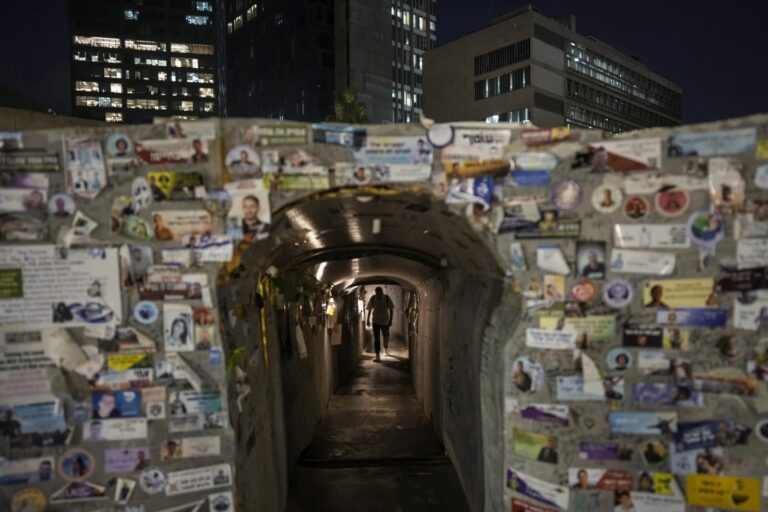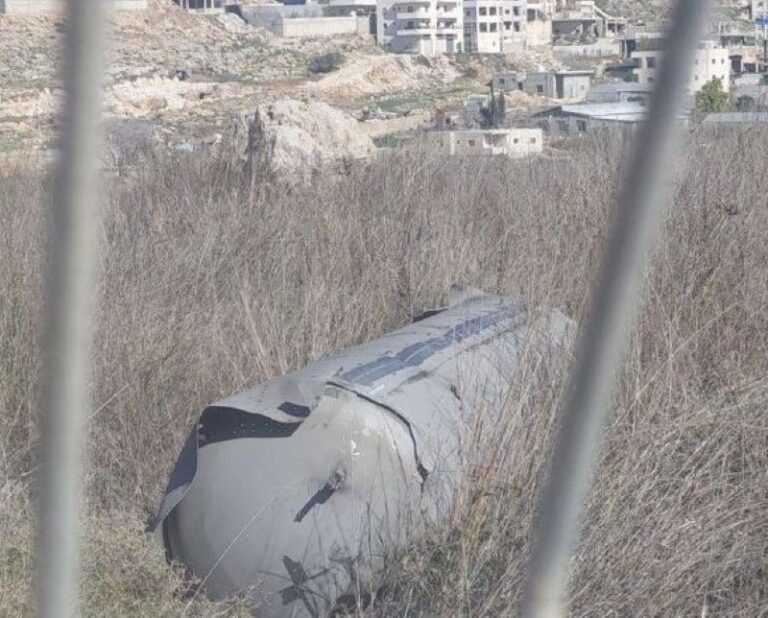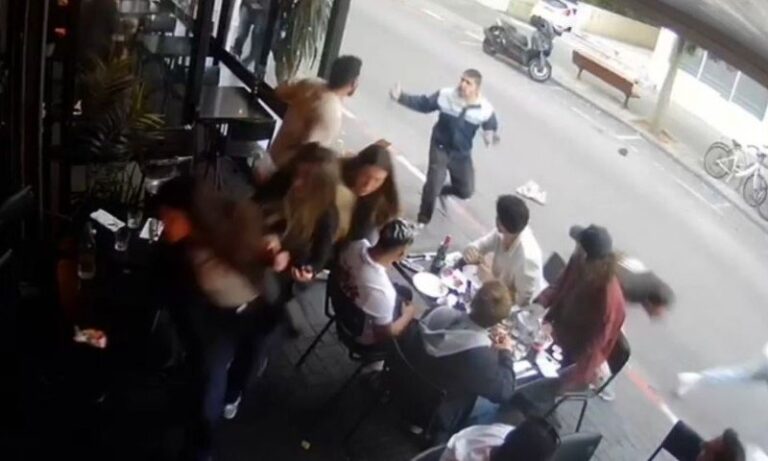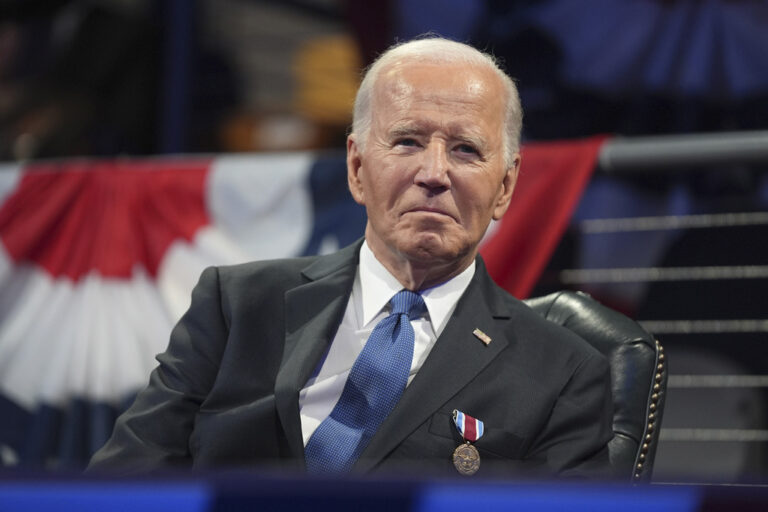 An American drug dealer who had faced life in prison was sentenced instead to 35 years Thursday for helping plan the deadly 2008 attacks on Mumbai, India — a punishment prosecutors said reflected his broad cooperation with U.S. investigators but that a victim’s family member called “an appalling dishonor.”
An American drug dealer who had faced life in prison was sentenced instead to 35 years Thursday for helping plan the deadly 2008 attacks on Mumbai, India — a punishment prosecutors said reflected his broad cooperation with U.S. investigators but that a victim’s family member called “an appalling dishonor.”
It was David Coleman Headley’s meticulous scouting missions that facilitated the assault by 10 gunmen from a Pakistani-based militant group on multiple targets in Mumbai, including the landmark Taj Mahal Hotel. TV cameras captured much of the three-day rampage often called India’s 9/11. More than 160 people, including children, were killed.
Glimpses of the horror came through the teary testimony of one of the victims who described the gory scene as she huddled under a restaurant table with her friends as gunmen sprayed the room with bullets, then walked around executing men, women and children one by one. Her own clothes soaked with blood.
“I know what a bullet can do to every part of the human body,” said Linda Ragsdale, a Tennessee children’s author, who was shot. “I know the sound of life leaving a 13-year-old child. These are things I never needed to know, never needed to experience.”
Headley faced life in prison, and at 52 years old, even a 35-year term could mean he’ll never walk free. But federal prosecutors had asked for a more lenient 30 to 35 years, citing his extraordinary cooperation including as the government’s star witness at the 2011 trial of a Chicago businessman convicted in a failed attack on a Danish newspaper.
Former U.S. Attorney Patrick Fitzgerald spoke in court calling Headley’s cooperation within 30 minutes of his 2009 arrest “unusual”.
However, Ragsdale and other victims called the 35 years unjust for the severity of the violence.
U.S. District Judge Harry Leinenweber said he considered the cooperation in imposing his sentence even though “the damage that was done was unfathomable.” He cited a letter from Headley who vowed that he was a changed man, but Leinenweber said he didn’t buy it.
“I don’t have any faith in Mr. Headley when he says he’s a changed person and believes in the American way of life,” he said.
Headley, who did not address the court, showed no emotion when the sentence was announced. Security was tight at the packed hearing; dogs were walked through the lines of people waiting to get into the courtroom.
Prosecutors say Headley, who was born in the U.S. to a Pakistani father and American mother, was motivated in part by his hatred of India going back to his childhood. He changed his birth name from Daood Gilani in 2006 so he could travel to and from India more easily to do reconnaissance without raising suspicions.
He never pulled a trigger in the attack, but his contribution to the Pakistani-based militant group, Lashkar-e-Taiba, made the assault more deadly. He conducted meticulous scouting missions — videotaping and mapping targets — so the attackers who had never been to Mumbai adeptly found their way around.
One woman whose husband and daughter were killed in the attack said a lighter sentence would be “an appalling dishonor” to those killed.
“I feel that for the magnitude of the killings that took place, David Headley has lost his right to live as a free man,” said Kia Scherr, who is currently in Mumbai. “This would be a moral outrage that is inexcusable.”
Prosecutors also have praised Headley for testifying against Tahawwur Rana, the Chicago businessman convicted of providing aid to Lashkar and backing a failed plot to attack a Danish newspaper for publishing depictions of the Prophet Muhammad. Rana, sentenced last week to 14 years in prison, claimed his friend Headley duped him.
Testifying at Rana’s trial in 2011, Headley spoke in a monotone voice, seemingly detached, even as he described one proposal for the never-carried-out Danish plot to behead newspaper staff and throw their heads onto a street.
In video excerpts of his interviews with the FBI after his arrest, Headley appears flippant, cool and calculating.
Prosecutors have recounted only in broad terms how Headley has shed light on the leadership, structure and possible targets of Lashkar-e-Taiba, which was believed to have ties to the Pakistani intelligence agency known as ISI. Headley has said his ISI contact was a “Major Iqbal,” who was named in the indictment that charged Headley.
The attackers arrived by boat on Nov. 26, 2008, carrying grenades and automatic weapons, and fanned out to hit multiple targets, crowded train station, a Jewish center and the hotel.
The attack heightened the strain in a historically antagonistic relationship between India and Pakistan, which have fought three major wars. Indian officials accuse Pakistani intelligence of helping to plan the assault — an allegation Pakistan denies.
For his cooperation and guilty plea, Headley secured both a promise that he would not face the death penalty and would not be extradited to India. Late last year, India secretly hanged the lone gunman who survived the Mumbai attack, Mohammed Ajmal Kasab.
The 12 counts Headley pleaded guilty to included conspiracy to commit murder in India and aiding and abetting in the murder of six Americans, who included Americans Alan Scherr and his 13-year-old daughter, Naomi.
The Scherr family members were in India for a two-week spiritual retreat and were staying at the Oberoi Trident Hotel, one of the sites that came under assault.
After the attack, Scherr helped start an organization called the One Life Alliance, which seeks to work against terrorism by promoting understanding and respect for the sacredness of life.
“This is how I am surviving this event, which erased life as I knew it,” she wrote in an email from Mumbai, where she continues to travel to for charity work.
Have you checked out YWN Radio yet? Click HERE to listen!
(AP)











2 Responses
35 years because he cooperated with the authorities. R”L, Reb Sholem Rubashkin and and Reb Nechemyeh Weberman should’ve chosen to cooperate.
This is an evil, evil man. Of course he was cooperative. He murders and throws others under the bus for the same or other murders. That’s not a moral change. It’s all quite predictable. As the Gemara quotes Shimshon HaShofet when discussing whether someone would ruin himself in order to bring others down in the process, “Let me die with the Philistines.”